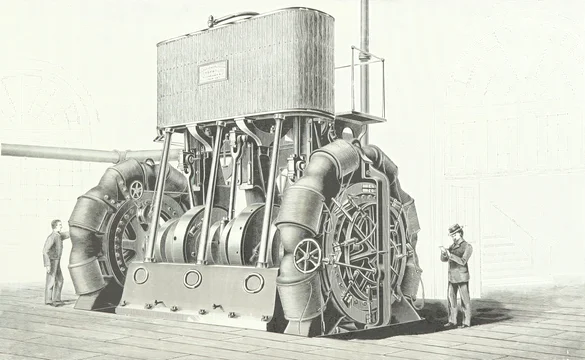
If you happen to be in Wilmington, DE tomorrow—perhaps as a summer associate—and feel like attending an interesting hearing, it could be worth stopping by Judge Noreika's Courtroom 4A at 10am.
The hearing involves an alleged protective order violation by plaintiff Rein Tech and its principal. See Rein Tech, Inc. v. Mueller Systems, LLC, C.A. No. 18-1683-MN, D.I. 170 (D. Del. May 16, 2025).
An Alleged Disclosure of AEO Information And an Alleged Prosecution Bar Violation
Rein Tech's principal apparently wears many hats. In addition to being the head of Rein Tech, he is also the named inventor on the asserted patents, the prosecuting attorney for those patented, and the testifying expert in the litigation. Id. He also submitted a factual affidavit in the litigation. Id.
Defendant's primary accusation here is that Rein Tech's principal received access to Attorneys' Eyes Only information under the protective order, or to a portion of it—despite being a competitive decision maker who is precluded from accessing AEO material under the protective order.
The principal is also alleged to have used that AEO material in pursuing a certificate of correction for one of the patents-in-suit, despite the fact that the protective order contains a prosecution bar.
The Court already had one hearing on this, but was unsatisfied with the answers of the attorney who appeared. Judge Noreika ordered the principal to appear in person, and also ordered a second attorney who had signed some of the relevant filings to appear. D.I. 190.
A Protective Order Violation Seems Likely
Why might this be an interesting hearing? Well, Plaintiff's arguments for why it didn't commit a protective order violation seem awfully shaky, at least based on the briefing.
For example, the plaintiff's principal claims that he never saw the protective order, D.I. 169 at 1, that he didn't sign an acknowledgement, D.I. 195 at 5, and that that excuses his violation of it. But he doesn't explain why a protective order wouldn't bind the sole principal of a plaintiff corporation. Beyond that, this argument doesn't help the plaintiff entity itself, given that the principal's argument concedes that Rein or its agents disclosed the information to an improper person (the principal himself).
From a quick review of the docket, the principal's other arguments look similarly difficult. He argues that the information shouldn't have been protected at all because the technology is "commonly known" or—good luck—featured in the asserted patent. D.I. 195 at 2-3.
That misunderstands the basic purpose and process of a protective order in a patent action: even if the general technology is commonly known, the particular way that a party practices it can still be confidential, along with many other things.
He likewise argues that the prosecution bar didn't list the exact patent number he prosecuted, but concedes that it extends to "any patent application pertaining to the Field of Invention of the Patents-in-Suit." That sounds like another tough one.
(He does at least have a timing point on the prosecution bar argument that could potentially go somewhere.)
Something Will Probably Happen
Given the seemingly shaky arguments, there is a decent chance that the Court is going to take some action here. That's particularly true because Judge Noreika often issues a ruling at the hearing in circumstances like this.
Of course, there could always be some kind of great lawyering on plaintiff's side that allows them (and their principal) to escape unscathed—and that would be just as interesting to see. Or the Court may defer ruling at all.
However it pans out, it should be a good hearing to attend for attorneys who regularly practice in cases with protective orders—i.e., basically all D. Del. IP practitioners. It's helpful to see how counsel and the Court react to things, and it's especially useful to learn from how counsel manages a potentially tough situation (whether they nail it or not).
Beyond that, it's always good to have another reminder of why protective orders mean something—especially given the time we all spend complying with them.
If you enjoyed this post, consider subscribing to receive free e-mail updates about new posts.




